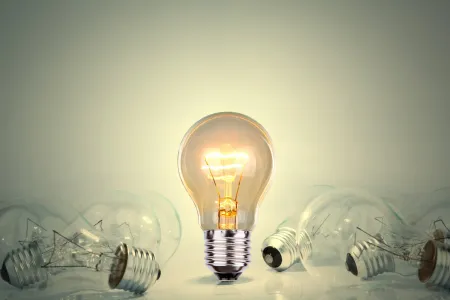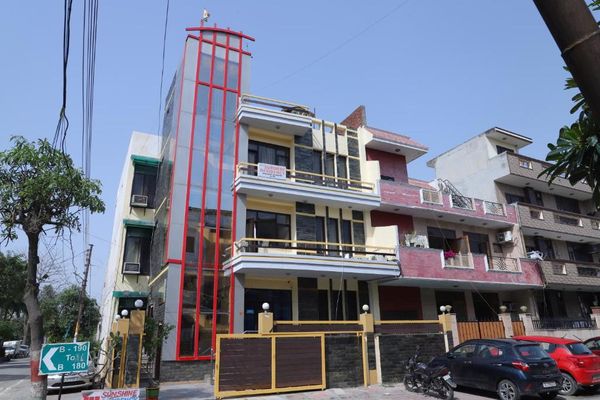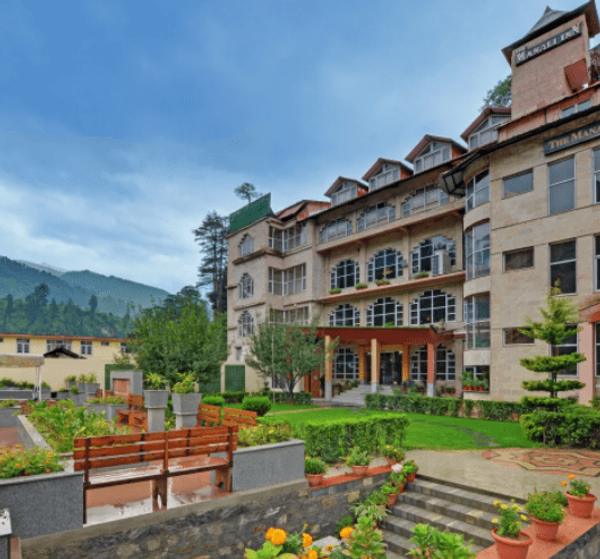Why Bulb Recycling Matters: Benefits for the Environment
 Jones Best
11 Dec, 2024
8 mins read
175
Jones Best
11 Dec, 2024
8 mins read
175

In today’s fast-paced world, where sustainability and environmental consciousness are more important than ever, understanding why bulb recycling matters can help pave the way for a healthier planet. This essential practice not only reduces environmental harm but also contributes to economic growth and resource preservation. Let's delve into the details of why bulb recycling is crucial and how it benefits the environment.
Understanding Bulb Recycling
What is Bulb Recycling?
Bulb recycling is the process of collecting and reprocessing used or discarded light bulbs to extract valuable materials, prevent pollution, and reduce waste. This process ensures that harmful components like mercury and lead do not end up in landfills, posing risks to ecosystems and human health.
Types of Bulbs Recyclable Today
Many types of light bulbs are recyclable, including:
- Compact Fluorescent Lamps (CFLs): Known for their energy efficiency, CFLs contain small amounts of mercury, which must be handled carefully.
- Light Emitting Diodes (LEDs): Although less harmful, LED bulbs contain metals and plastics that can be reused.
- Fluorescent Tubes: Common in commercial settings, these tubes are ideal candidates for recycling.
- Incandescent Bulbs: While not widely recycled, their glass and metal components can sometimes be repurposed.
Key Steps in the Recycling Process
The recycling process generally involves:
- Collection: Bulbs are gathered through drop-off points, recycling events, or curbside programs.
- Sorting: Different types of bulbs are separated to ensure proper handling.
- Processing: Components like glass, metal, and phosphor are extracted and treated.
- Reuse: Recovered materials are used to create new products, reducing the need for raw resources.
Environmental Impacts of Improper Disposal
Toxic Substances in Bulbs and Their Effects
Many bulbs, especially CFLs and fluorescent tubes, contain hazardous substances such as mercury. Improper disposal can release these toxins into the environment, causing severe harm to wildlife and human health.
Soil and Water Contamination Risks
When bulbs are discarded in landfills, mercury and other chemicals can leach into the soil and water supply. This contamination disrupts ecosystems, affecting plant and animal life while also posing risks to drinking water sources.
Long-term Environmental Consequences
The accumulation of non-biodegradable materials like plastics and metals in bulbs adds to the growing problem of landfill waste. Additionally, the energy-intensive production of new bulbs contributes to greenhouse gas emissions, exacerbating climate change.
The Economic and Social Benefits of Bulb Recycling
Job Creation through Recycling Initiatives
Recycling programs create numerous job opportunities, from collection and transportation to processing and manufacturing. These initiatives help support local economies while promoting sustainable practices.
Saving Natural Resources through Recycling
By recycling bulbs, we can recover valuable materials such as glass, aluminum, and phosphor. This reduces the need for mining and extraction, conserving natural resources and lowering environmental impact.
Cost Savings for Consumers and Businesses
Recycling can lead to cost savings in multiple ways. Businesses benefit from reduced waste disposal fees, while consumers can take advantage of programs offering discounts on new bulbs in exchange for recycling old ones.
How to Start Recycling Bulbs
Finding Local Recycling Programs
Many cities and municipalities offer recycling programs specifically for bulbs. Websites like Earth911 and local government portals provide information on nearby drop-off locations and events.
Proper Storage Before Recycling
To ensure safety, store used bulbs in a sturdy container to prevent breakage. Label the container to remind yourself and others of its contents and handle it carefully when transporting.
Encouraging Community Involvement
Spread awareness about the importance of bulb recycling by organizing community drives, sharing information on social media, and collaborating with local businesses to establish collection points.
FAQs About Bulb Recycling
Why is bulb recycling important for the environment?
Bulb recycling prevents harmful substances from entering the environment, reduces waste, and promotes the reuse of valuable materials, contributing to a sustainable future.
Can all types of bulbs be recycled?
While most bulbs can be recycled, some types, like incandescent bulbs, may have limited options. Check with local recycling facilities for guidance.
What are the risks of not recycling bulbs?
Improper disposal can release toxic substances like mercury into the environment, causing pollution, harming wildlife, and endangering human health.
How can I locate bulb recycling programs in my area?
Search online directories, contact your local waste management authority, or visit retailer websites that offer take-back programs.
What happens to bulbs after they are recycled?
Bulbs are processed to recover materials like glass, metal, and phosphor. These materials are then reused in manufacturing new products, reducing the need for raw resources.
Are there any costs associated with bulb recycling?
Some programs charge a small fee to cover recycling costs, while others offer free services. Many retailers also provide free take-back options for customers.
Conclusion: A Brighter Future Through Recycling
Bulb recycling is a small but significant step toward building a sustainable future. By understanding the process, recognizing its benefits, and actively participating in recycling programs, we can reduce environmental harm and conserve precious resources. Together, we can illuminate a path toward a cleaner, greener world.
Written By:
Jones Best



Hotels at your convenience
Now choose your stay according to your preference. From finding a place for your dream destination or a mere weekend getaway to business accommodations or brief stay, we have got you covered. Explore hotels as per your mood.





